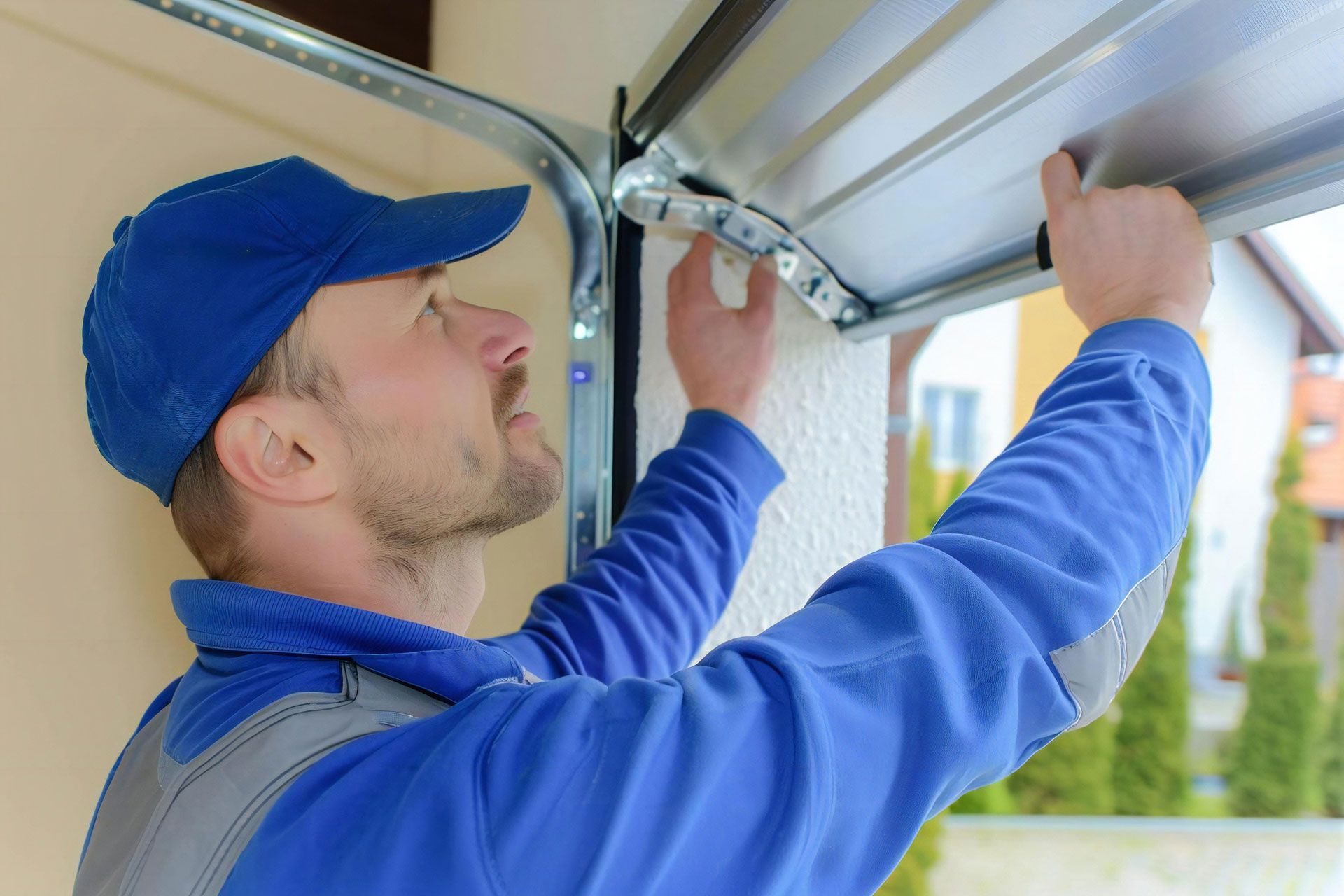Common Issues and Solutions for Garage Door Mishaps
Common Issues and Solutions for Garage Door Mishaps

A garage door that won’t close can be a major inconvenience. It compromises your home’s security, exposes your belongings to the elements, and lets in extreme temperatures during harsh weather. Understanding why this happens can help you resolve the issue quickly and efficiently.
Common Reasons Why Your Garage Door Might Not Close and Steps to Address Them:
1. Transmitter Issues
The transmitter sends the signal that operates your garage door. If its batteries are weak or dead, the door won’t respond. A remote that works inconsistently is often a sign of a failing battery.
Solution:
Test the wall-mounted controls to see if the door closes. If it does, replace the transmitter batteries. If the issue persists, consult a professional for further assistance.
2. Damaged or Misaligned Tracks
Over time, garage door tracks can become misaligned due to wear and tear. If the tracks are bent or no longer parallel, the door may not close properly and could even fall off, posing a safety risk.
Solution:
Inspect the tracks for visible damage. For minor misalignments, you can attempt to straighten the tracks carefully. For significant issues, contact a professional service like Cornwell Door to realign or replace the tracks.
3. Garage Sensors
Photo eye sensors on either side of the door ensure safe operation by detecting objects in the door’s path. Dirty, misaligned, or obstructed sensors can prevent the door from closing.
Solution:
- Clean the sensor lenses with a soft cloth if they’re dirty or smudged.
- Realign the sensors if they aren’t facing each other.
- Remove any objects blocking the sensor path, including debris, sunlight glare, or large items.
- Perform regular checks to ensure the sensors are functioning correctly.
4. Broken Springs or Cables
Tension springs and cables play a crucial role in controlling the door’s movement. If these components are damaged, the door may fail to close properly or crash down suddenly, risking injury or damage.
Solution:
Avoid handling broken springs or cables yourself, as they are dangerous under tension. Instead, contact a repair professional immediately to replace these components safely.
5. Blocked Door Path
Even small debris like dirt, pebbles, or leaves can obstruct the garage door’s path, preventing it from closing fully. Larger objects, such as a partially parked vehicle or misplaced items, can also cause issues.
Solution:
Clear any debris or objects from the door’s path. Installing weather stripping can help reduce the accumulation of small debris and improve insulation.
6. Activated Disconnect Switch
The disconnect switch is designed for manual operation during power outages. If accidentally left activated, it prevents the garage door from moving.
Solution:
Check if the disconnect switch is engaged. If so, disable it to restore normal operation.
If In Doubt, Contact Us For Professional Garage Door Service Today!
By addressing these common issues, you can keep your garage door functioning smoothly and avoid unnecessary frustration.
